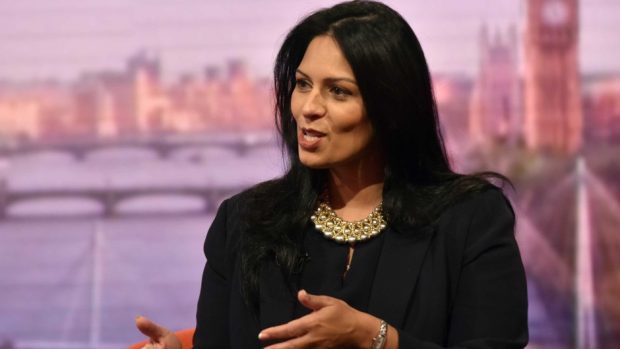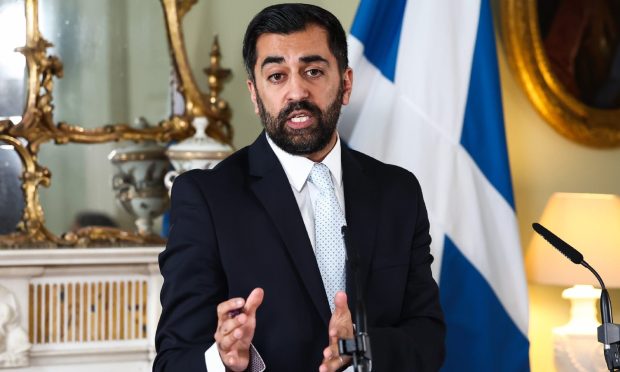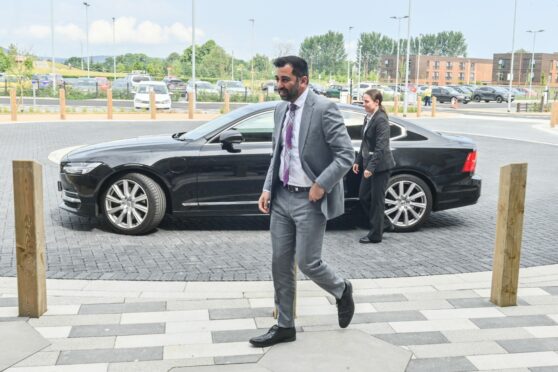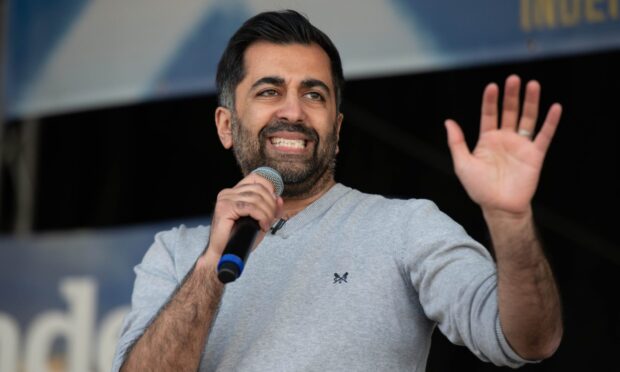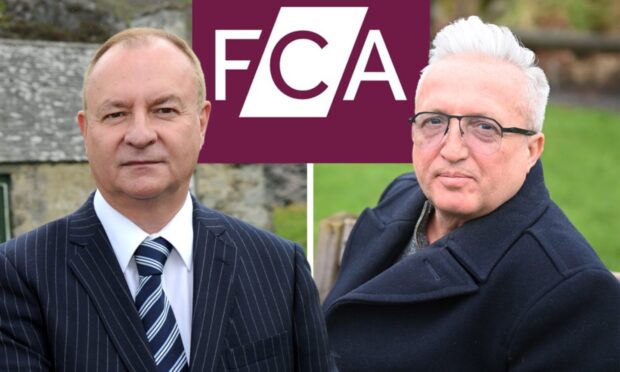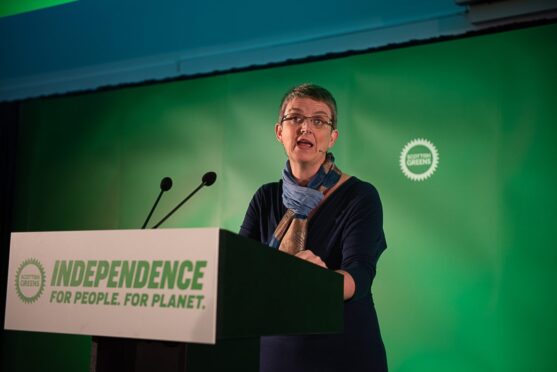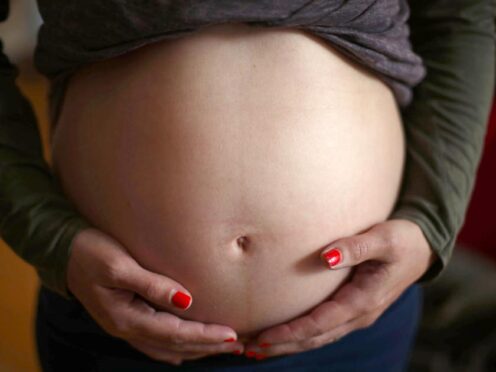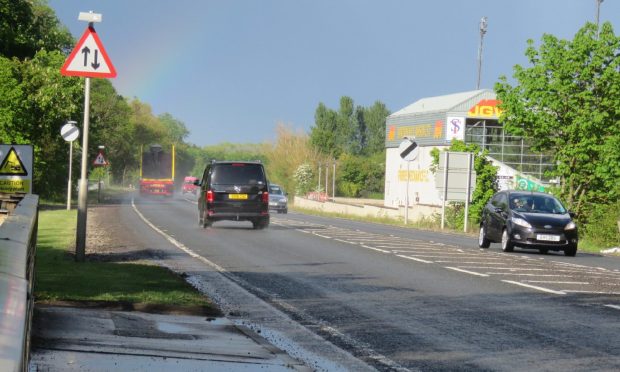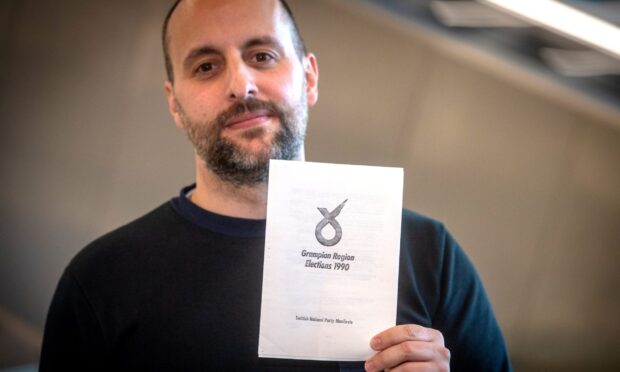Slavery. Many of us see this word and think it’s a practice consigned to history books.
Sadly though, we live in a world where there are still around 45 million victims of this crime across the globe, and not just in countries on the other side of the world. Shamefully, thousands of victims are right here on our doorstep.
Forty-five million victims of slavery – that number should stop us in our tracks. It is approximately a population nine times the size of Scotland.
And these are some of the most victimised, brutalised and exploited people in the world – women trapped into debt bondage as they try to support their families; vulnerable girls tricked and trafficked into sexual slavery; children forced to work down in mines and in factories for little or no pay.
And who wins? It is the criminals who profit from this misery to the tune of $150billion per year.
Meanwhile, the victims are robbed of their dignity, their humanity, their right to work freely and earn a living.
Yesterday I met with a number of British organisations doing incredible work on the ground to help people escape slavery and abuse.
But the world hasn’t done enough. We are too fragmented and uncoordinated in our efforts.
So today, the International day for the Abolition of Slavery, is the right moment to say: the time is ripe for change.
We are calling on all governments, businesses, charities and religious leaders who I know are increasingly aware of just how pervasive and corrosive this crime is, to build on the growing momentum.
UK leadership in tackling modern slavery comes right from the top. Our prime minister championed the UK’s Modern Slavery Act when she was home secretary. Theresa May introduced the first legislation of its kind in Europe, bringing in tough new penalties to put slave masters behind bars where they belong.
And the work continues. Law enforcement is hugely important, but we need to tackle the root causes of slavery if we’re ever going to stamp it out fully.
Modern slavery thrives on discrimination and inequality. It overwhelmingly affects the most vulnerable members of society – with people often becoming trapped because they are desperate and isolated.
So we need to reduce people’s vulnerabilities to slavery and create better alternatives.
This is where the Department for International Development (DFID) is doing important work alongside our international partners.
We’re working with governments in developing countries to improve laws and policies. We’re helping women receive training and skills in their communities. And we’re working with UK brands to tackle exploitative recruitment practices that can lead people into situations of modern day slavery.
Today I’m very pleased to announce that DFID will be going even further to help stamp out modern slavery by doubling our investment in a special protection fund set up to keep women and girl refugees in the Mediterranean region safe from trafficking and exploitation. The fund will be used to better identify, protect and refer vulnerable female migrants and refugees, by providing shelters as a safe alternative to dangerous camp environments and strengthening national counter-trafficking mechanisms in Greece and the Balkans.
When I visited India earlier this year, I met some former agriculture bonded labourers who were forced into servicing a debt that their families had taken. Instead of being paid wages they were given grains.
Bonded labour is banned in India and with our support they were made aware of their rights, helped to access legal support and decent work.
My department also works in Bangladesh, Nepal and Ethiopia to help thousands of girls escape child marriage and choose their own futures.
Through our humanitarian work we’re making modern slavery a priority too, recognising just how vulnerable women and children are during disasters and emergencies when the normal rules of society often break down. After the Nepal earthquake last year, DFID worked with UNICEF and the Nepalese Government to intercept more than 500 children and women from trafficking.
We want to see a world free of slavery. We want to end the terrible abuse and exploitation of children.
That is the scale of our ambition.
We will only succeed though if we join forces – businesses, governments, charities, activists, faith groups, individuals.
We need to work together to raise awareness, strengthen the political will to tackle these vile crimes, and work with businesses to root out slavery and child labour in their supply chains.
The final chapters of the ugly story of slavery are yet to be written – that’s our task now. We owe it to the millions of victims, and to all the potential future victims. Let’s act now and end these evil crimes for good.
With an industrial revolution in our DNA and a long history of successful extraction of offshore oil and gas in Scotland, it’s no wonder that the UK is the chosen partner of African countries wanting to make the most of their natural resources. Across Africa, the UK is helping countries to manage their natural resources more effectively and transparently, to create jobs, grow economically and stamp out corruption.
Drawing on the best of British expertise in the oil and gas sector we are giving developing nation’s governments the negotiating skills they need to ensure they get the best deals, and we are helping them to build robust institutions. In Sierra Leone we helped establish the country’s National Minerals Agency as an independent regulator of the minerals sector, resulting in contracts being managed more efficiently and a reduction in corruption.
The UK has long played a leading role in tackling corruption, establishing the Extractive Industries Transparency Initiative which is now implemented by 51 countries and tracks more than $2trillion of revenue. That’s money local governments can use to invest in vital services like health and education, meaning greater support to combat poverty and less reliance on aid.
We are also building skills in local communities in Kenya, Mozambique, Tanzania and Uganda for jobs in the oil and gas sector, enabling individuals to earn the money they need to feed their families; we are empowering girls and women to determine their own future and we’re giving the poorest people hope, so they don’t feel pressure to migrate.
Today, we are tackling poverty in the long-term while building the foundations of our trading partners of tomorrow.
